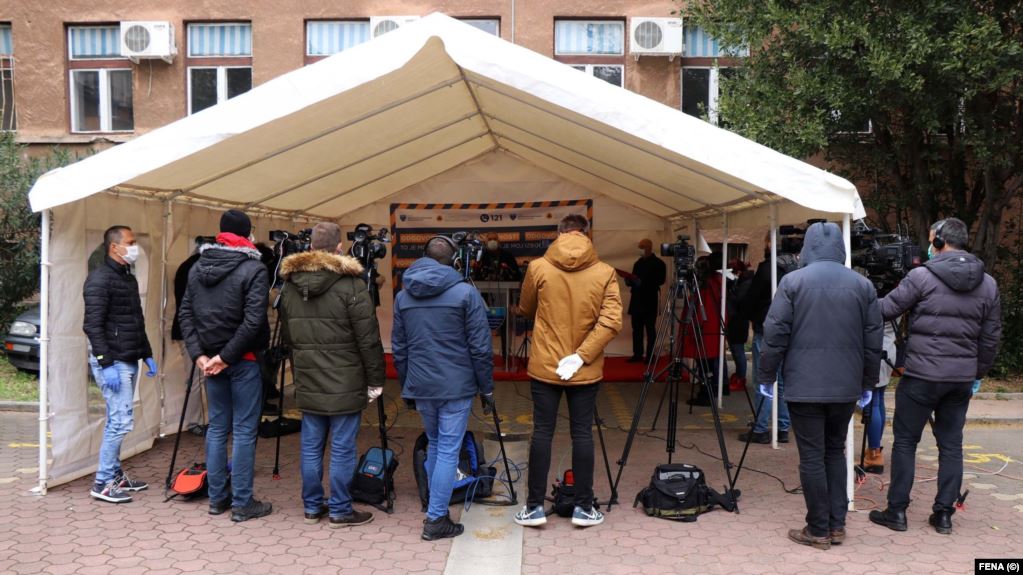
SARAJEVO, 15.04.2020. – Mostar’s daily newspapers Dnevni List these days could lock their doors permanently due to the economic crisis caused by the COVID-19 pandemic and restrictive measures by governments, says Dario Lukic, editor-in-chief of the newspaper, in an interview with Radio Free Europe (RSE).
“I must also say that we have already addressed many international and domestic institutions for help, but we have received a smooth rejection from all addresses. It is clear to me that local politicians are not comfortable with independent media and that they even wish their downfall during the crisis, so I was really disappointed by the behavior of the international community, which would seem to literally allow us to ‘drop dead’. We are coming slowly but surely to the situation that only politically fit media will survive, as well as those who are forced to sell their independence for a tiny bit of money”, says Lukic.
Layoffs in the media outlets
The media group, which features the daily Oslobodjenje and the O Channel, has fired about 17 employees these days, as editor-in-chief of Oslobodjenje, Vildana Selimbegovic, confirmed for RSE.
Among them is journalist Sladjan Tomic, who tells RSE that he has been told he is no longer needed.
“On Wednesday, we found out that 15 colleagues from Oslobodjenje had been fired and that television was next on the line. On Thursday, while recording a news story, the secretary of the newly appointed director called me and said that the director wanted to see me. On my return from the field I saw some colleagues saying goodbye because they got fired. I knew what was waiting for me. I went to the CEO and he told me that the cash flow at the company was getting smaller and that more than 15 people were technologically redundant, and I was among them”, says Tomic.
What is the reason for the layoffs?
The editor-in-chief of Oslobodjenje Vildana Selimbegovic explains to RSE that since March 8 clients have started massively canceling advertising campaigns to the media outlets, including Oslobodjenje.
“In accordance with the situation, we first started working from home, and since we do not know how long the crisis will last, we reduced the number of pages of the newspaper, as well as the content and therefore the volume of work. We were left without about 40 percent of the sales points because almost everything is closed. In such a situation, we had to take action and let go a number of workers”, Selimbegovic said, adding that there was no help on either side.
“The authorities here are more interested in their army of voters than in the real sector, in which I truly include the media. However, I still hope that we will succeed in surviving”, Selimbegovic said.
Loss of marketing income
Milorad Labus, president of the Republika Srpska Journalists’ Association, told RSE that advertising campaigns, congresses and conferences were also canceled in that BiH entity ‘overnight’.
“Businesses are closed and commercial media remain at about 10 to 15 percent of marketing revenue. We have approached the RS government and asked for help. We expect a meeting by the end of the week to discuss the situation”, Labus said.
In addition to the economic crisis in the media, the Government of Republika Srpska (RS) has a decision banning panic and disorder during emergency situation, which applies to the media and journalists, as well as to healthcare professionals. The fines range up to 9,000 KM (4,500 euros).
Labus says this decision is still under discussion, as it is not clearly defined who would decide exactly what triggered panic in news reports based on information from official institutions and how would police impose penalties, ex officio or by citizens reports.
Is it posssible to have a media aid fund?
On April 13, the Steering Committee of the BH Journalists Association called on media employers in Bosnia and Herzegovina to halt layoffs for journalists and other media employees as an economic measure and response to the financial crisis within the media industry caused by the virus corona epidemic and drastic cuts in commercial and other revenues.
Borka Rudic, a representative of the Association, tells RSE that they have appealed to both authorities and international donors.
“I emphasize that in an emergency, the media is left without 80 percent of marketing and sales income. We believe that in this situation, letting the media outlets close also has a political connotation that aims to close all those who are not politically influenced, do not work in the interest of politics and who want to engage in professional and responsible journalism”, emphasizes Rudic.
The BH Journalists Association proposes the establishment of a state-level fund that will use the excess revenues of the BiH Communications Regulatory Agency (RAK), but, as Rudic said, provided that funds are not distributed by any state body but by a separate body of the Regulatory Agency.
The Association recalls that it was “the media and journalists who were the service of all citizens and the key transmitters of information regarding the corona virus epidemic.”